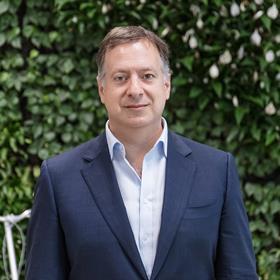Reduce carbon. Make less waste. Consume less energy. These are now familiar mantras. The focus is on making the world marginally less bad, and in time hopefully a lot less bad.

These are important endeavours, but we should also recognise much of this work is about abating a negative; it’s necessary and purposeful, but not entirely fulfilling.
What if rather than just considering what we must reduce, we also asked what good things we want more of? At FORE, we’ve been thinking about this for some time. Yes, we want to reduce our impact on the planet – and by 2025 our business and assets will produce net zero carbon – but just as much, we want to drive positive outcomes and improve lives in a meaningful way.
One sector that’s ripe for this approach is housing. While considerable attention has fallen on the commercial sector, housing has largely flown under the ESG radar. Yet as the Covid pandemic has made clear, our homes have a huge impact on our wellbeing, physical and mental – as well as the planet.
We are looking at different opportunities in this sector, including affordable housing, but are first setting our sights on assisted living, with plans to develop a new generation of later-living developments that will be both net zero carbon and have a net positive social impact.
As the pandemic has made clear, our homes have a huge impact on our wellbeing
Why later living? Because the opportunity to do more than just abate a negative is huge. The strains on the social care system and NHS are well known and have been thrown into even sharper relief by the pandemic. As the population continues to age, the problem becomes increasingly acute, and the market is struggling to catch up.
The country is chronically undersupplied in the extra-care sector, with a current supply of fewer than 80,000 later-living homes, a penetration rate of just 0.8%. This compares with 5% or more in other western markets such as the US, Canada and Australia and contributes to the overall UK housing crisis by tying up family homes, driving up prices along the entire housing food chain.
So there is a big negative that ultra-sustainable extra-care housing can abate: shoring up our stretched medical system and providing a backstop care regime for chronic illness, while also helping the elderly feel less lonely. We can combine this with big environmental ambitions, making later-living communities that are net zero carbon, are detached from the gas grid, that divert all waste from landfills and that deploy the full force of all the tools in our green toolbox.
But if the outcome we seek is for our parents and grandparents to live longer, healthier lives – and more joyful later years – we need to go further. This could come in so many forms. In our first net zero extra-care community in Bristol, we will create local food production on site, involving the residents, local community and social enterprises. The aim will be to cultivate joy from gardening and connecting with nature – fostering a sense of self-sufficiency and a newfound purpose.
This may seem a long way from the usual ambitions of commercial real estate, but we want to define a new kind of asset class: resilient, empathetic, joyful, healthy and low carbon, in whatever physical guise this may take.
Basil Demeroutis is managing partner at FORE Partnership






























No comments yet